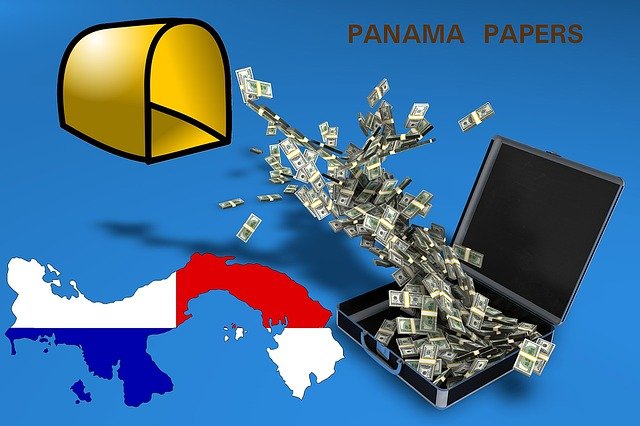
Prevention of Money Laundering (PMLA)
INTERPOL’s definition of money laundering is: “any act or attempted act to conceal or disguise the identity of illegally obtained proceeds so that they appear to have originated from legitimate sources”.
Illegally obtained funds are laundered and moved around the globe using and abusing shell companies, intermediaries and money transmitters. In this way, the illegal funds remain hidden and are integrated into legal business and into the legal economy.
The term “Black Money” is not easy to define as it may have the characteristics of chameleon, changing its colour to suit the purpose, and the same includes ‘unaccounted income’, ‘black income’, ‘dirty money’, ‘black wealth’, ‘underground wealth’, ‘black economy’, ‘parallel economy’, ‘shadow economy’, and ‘underground’ or ‘unofficial’ economy.
An amount 1.945 billion Swiss Francs (about INR 9,295 Crore) has been alleged to have been laundered or stacked by Indians in Swiss banks, and this is an official information derived from the White Paper of the Government of India in the year 2012. However, the specialists say that the real amount is well above the estimated level. As per a study by United Nations (UNODC), it is suggested that all criminal proceeds are likely to have amounted to some 3.6 per cent of GDP (2.3 – 5.5 per cent) or around US$2.1 trillion in 2009.
Law of Anti-Money-Laundering (AML) In India
Prevention of Money-Laundering Act, 2002 (PMLA) – Anti Money Laundering (AML) statute
India has a specific Anti Money Laundering law (AML) in the Prevention of Money-Laundering Act, 2002 (hereinafter referred as ‘PMLA’ ), which has been amended from time to time to plug loopholes, and it provides the punishment for Money Laundering.
Money Laundering – The Indian Legal Definition
As per the Section 3 of the Prevention of Money-Laundering Act, 2002 (PMLA), the offence of Money Laundering is defined as under:
“Whosoever
· directly or indirectly,
· attempts to indulge, or
· knowingly assists, or
· knowingly is party, or
· is actually involved in
· any process, or
· activity connected,
· with the Proceeds of Crime, including its
· concealment,
· possession,
· acquisition, or
· use,
AND
· Projecting or Claiming it as Untainted Property
shall be guilty of offence of Money-Laundering.”
The definition of “Money-Laundering” in India is comprehensive enough to cover most of the instances of converting the black money into white, as the same will depend up on the willingness of Enforcement Authorities for strong implementation of, which is in any case subject to judicial scrutiny. Some of the examples of Money-Laundering in the corporate world cover the instances relating to Shell Companies, Foreign Investments, Corporate Mismanagement, Insider Trading and Bribery.
One essential requirement to constitute an offence of money laundering is to be involved in any process or activity connected to proceeds of crime. Proceeds of crime have its genesis in a criminal activity relating to a scheduled offence. Moreover, the legislature did not intend that in every case, where a charge sheet is filed for commission of a scheduled offence, the proceedings under PMLA for the offense of money laundering should be initiated.
Why so many legislations attract PMLA?
The endeavor of the Legislature is to cover not only the wealth earned through Illegal means but also to bring Illegal Income under the purview of PMLA, which includes even Legal Income that is concealed from public authorities. As per the White Paper of May 2012 by the Ministry of Finance, Government of India, The Money-Laundering is not only the wealth earned through illegal means, the same would also include legal income that is concealed from public authorities:
To evade payment of Taxes (Income Tax, Excise Duty, Sales Tax, Stamp Duty, etc);
To evade payment of other statutory contributions;
To evade compliance with the provisions of Industrial laws such as the Industrial Dispute Act 1947, Minimum Wages Act 1948, Payment of Bonus Act 1936, Factories Act 1948, and Contract Labour (Regulation and Abolition) Act 1970; and/or
To evade compliance with other laws and administrative procedures.
The above itself clarifies, why PMLA includes a wide range of legalization in India under its ambit, despite the fact that patently none of these legislations have anything to do with the definition of Money-Laundering, as of now any evasion of the state levies and dues will also tantamount to Money-Laundering and attract PMLA.
Methods and Means for Generation of Black Money in the Corporate World
Some of the ways for generation of black money which are peculiar to the Corporate Sectors may be narrated herein below:
· External Trade and Transfer Pricing;
· Manipulation by Way of International Transactions through Associate Enterprises;
· Financial Market Transactions;
· Out of Book Transactions;
· Parallel Books of Accounts;
· Manipulation of Books of Account;
· Manipulation of Sales/Receipts;
· Under-reporting of Production;
· Manipulation of Expenses;
· Manipulations of Accounts;
· Manipulation of Capital;
· Manipulation of Closing Stock;
· Manipulation of Capital Expenses;
· Generation of Black money in Some Vulnerable Sections of the Economy;
· Land and Real Estate Transactions;
· Bullion and Jewellery Transactions;
· Public Procurement;
· Non-profit Sector;
· Informal Sector and Cash Economy;
· Investment through Innovative Derivative Instruments.
By
Siddharth Dalmia, B.Tech.(DAIICT)

CROSS BORDER TRANSACTIONS: CRYPTOCURRENCY AND FOREIGN EXCHANGE MANAGEMENT ACT (FEMA)
Cross Border Transfer of cryptocurrency is a significant aspect of its being as cryptocurrencies are traded through online platforms and these platforms facilitate the exchange of cryptocurrency into another currency including a fiat currency. This raises questions under India’s foreign exchange control law, i.e., the Foreign Exchange Management Act (FEMA). This article intends to analyze the possible categorization of cryptocurrencies under FEMA and the legal implications to follow.
Applicability of FEMA on Cryptocurrencies in India
Applicability of FEMA on Cryptocurrencies in India The risk relating to FEMA has been highlighted by the RBI ample number of times. In P2P transfers, while the exchange provides a portal to match the orders of a seller and buyer, the consideration would flow directly...
Applicability of Commodities Laws on CryptoCurrency Exchanges in India
Applicability of Commodity Laws on Crypto Exchanges in India If the Cryptocurrencies are classified as ‘commodities,’ the exchanges which facilitate the trading of cryptocurrencies might be governed as the ‘commodity’ exchanges, which can have implications under...
Applicability of Securities and Investment Laws on Cryptocurrency Exchanges in India
Applicability of Securities and Investment Laws on Cryptocurrency Exchanges in India Based on the Report of the Committee to propose specific actions to be taken in relation to Virtual Currencies [1], the cryptocurrencies like Bitcoin or Ether are unlikely to be...

Recent Comments